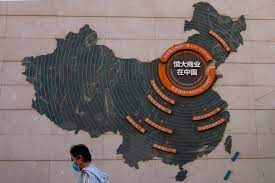China was once the world’s greatest crypto mining centre point, representing between 65% to 75% of the aggregate “hash rate” — or handling power — of the bitcoin network. See how that has changed since the ban on mining.
- China’s portion of the worldwide bitcoin mining limit dove to focus in July after specialists sent off a new crackdown on digital currencies.
- However, a few underground mining tasks have since arisen in the country, with miners taking consideration to work around Beijing’s boycott.
- New examination from the Cambridge Center for Alternative Finance shows that the Chinese bitcoin mining movement has no time bounced back.
Last September, China appeared to be not kidding about prohibiting digital forms of money, driving excavators to at long last escape the country for Kazakhstan. Only eight months after the fact, however, once more, things may change.

Miners in that country additionally use off-framework power to try not to caution specialists.
Beijing, in reporting the boycott last year, said it would inspect whether associations that get sponsored power from the state — schools, medical clinics, public venues, and other public establishments — are engaged with crypto mining. Assuming the tests recognize violators of China’s crypto mining boycott, an administration representative said, they would be rebuffed with higher power costs.
China’s crackdown on digital currencies last year acquainted significantly greater unpredictability with an unsteady market. The public authority marked crypto mining as an “incredibly unsafe” industry that imperils China’s quest for carbon lack of bias.
China’s by all accounts, not the only organization to boycott Bitcoin mining. Kosovo is the latest to disallow the demonstration. Others incorporate Kazakhstan and Iran.
Bitcoin Miners aren’t surrendering in China notwithstanding Beijing’s restriction on the training.
The Ban in brief:
China was once the world’s greatest crypto mining centre point, representing between 65% to 75% of the aggregate “hash rate” — or handling power — of the bitcoin network.
However, the nation’s portion of the worldwide bitcoin mining limit dove to focus in July and August 2021, as indicated by Cambridge University information, after specialists sent off a new crackdown on digital forms of money.
Among the means China took was to abrogate crypto mining, the power-concentrated process that prompts the formation of new advanced cash. That brought about a few excavators escaping to different nations, including the U.S. furthermore, Kazakhstan, which borders China.
Presently, a new examination from the Cambridge Center for Alternative Finance shows that Chinese bitcoin mining action has rapidly bounced back. By September 2021, China made up more than 22% of the complete bitcoin mining market, information from Cambridge specialists shows.
Yet again it implies China is a top worldwide player in bitcoin mining — second just to the U.S., which obscured China as the biggest objective for the area last year.
There is one proviso: The examination strategy depends on total geolocation from tremendous bitcoin mining “pools” — which consolidate registering assets to additional really mine new tokens — to figure out where movement is packed in various nations.
This approach might be helpless against “purposeful muddling” by some bitcoin excavators utilizing a virtual confidential organization (VPN) to disguise their area, specialists said. VPNs make it feasible for clients to course their traffic through a server in another nation, making them convenient apparatuses for individuals in nations like China, where web use is intensely confined.
In any case, they added this restriction would “just tolerably influence” the exactness of the investigation.
What is bitcoin mining?
Dissimilar to customary monetary standards, digital forms of money are decentralized. That implies that crafted by handling exchanges and printing new units of cash is taken care of by a disseminated organization of PCs rather than banks and different go-betweens.
To work with a bitcoin instalment, alleged excavators need to concur that the exchange is substantial. That interaction involves making complex estimations to sort out a riddle that expansions in trouble as an ever-increasing number of excavators join the organization, known as the blockchain.
Whoever is first to settle the riddle will add another group of exchanges to the blockchain and is compensated with some bitcoin for their work.
For what reason is Beijing stressed?
This technique for arriving at an agreement, known as “evidence of work” consumes a great deal of energy — generally as much as whole nations, like Sweden and Norway.
China has every now and again given alerts about crypto. Be that as it may, its latest crackdown was apparently the most extreme.
The world’s second-biggest economy was managing a multi-month energy deficiency last year, which prompted various power cuts.
China is still intensely dependent on coal and is expanding its interest in environmentally friendly power in a bid to become carbon impartial by 2060. Specialists see crypto mining as a likely hindrance to that arrangement.
Presently, a resurgence of bitcoin creation in China has slung the country to the second-biggest objective for individuals expecting to track down new computerized cash — there are as yet 2 million bitcoins left to be mined. It very well may be a less productive undertaking now, however, with the bitcoin cost down over half from its November top.
Read More- https://tdznkwjt9mxt6p1p8657.cleaver.live/the-future-of-invest-in-crypto-currency/













